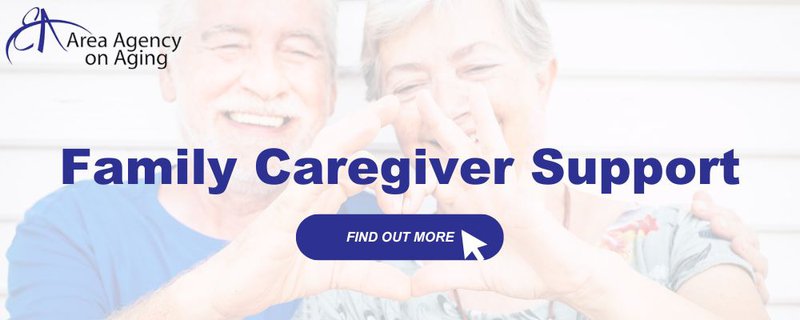Millions of people in the United States provide unpaid care for their elderly loved ones. And while caregiving can be a deeply rewarding experience, it can also be incredibly stressful. In fact, caregiver stress is a common and serious issue that can negatively impact your physical and emotional health. However, there are effective ways how to deal with the stress of caring for elderly parents.
In this article, we'll discuss how to deal with the stress of caring for elderly parents or other family members. We'll explore the causes, symptoms, and importance of addressing caregiver stress. Lastly, we'll offer practical advice and resources to help you cope with the emotional upheaval of caregiving.
Whether you're a part-time or full-time caregiver, this article will provide valuable insights to navigate its challenges successfully.

Understanding Caregiver Stress
Caring for an aging family member can be emotionally and physically demanding, leading to caregiver stress.
The effects of caregiver stress can manifest in various ways, from physical symptoms like headaches and fatigue to emotional symptoms such as anxiety, depression, and social withdrawal.
Causes of Caregiver Stress
Many factors can contribute to caregiver stress, and some of the most common ones include these stressors:
- Financial strain: Caregiving can be expensive, and many family caregivers may face financial difficulties due to medical care costs, medications, and other expenses associated with caregiving.
- Lack of support: It can be overwhelming when caregivers don't have enough support from family, friends, or community resources.
- Time constraints: Caregiving often requires significant time and energy, which can be difficult for caregivers trying to balance work and other responsibilities.
- Demands of caregiving: The activities related to caregiving are physically and emotionally challenging. These challenges can lead to stress and frustration, especially if the caregiver feels unequipped to handle those tasks.
Coping with the decline of a loved one: Caregivers may also experience stress as they watch their loved ones experience physical and mental decline.
Effects of Caregiver Stress on Physical and Emotional Health
Some physical effects of caregiver stress include headaches, fatigue, weight gain or loss, and a weakened immune system. If left unchecked, chronic stress leads to more severe health problems, such as heart disease, diabetes, and high blood pressure.
In addition to physical effects, caregiver stress can also impact a caregiver's emotional health. Caregivers who experience chronic stress may be at a higher risk for developing depression, anxiety, and other mental health disorders. They may also feel isolated, lonely, and overwhelmed, which can affect their relationships with family members and friends.
Resources for Caregivers
Fortunately, resources are available to help caregivers manage their stress and maintain their well-being. Some of these resources include support groups and counseling.
Support groups are a great way for caregivers to connect with others who are going through similar experiences. They provide a safe and supportive environment where caregivers can share their feelings, experiences, and challenges with others who understand what they are experiencing. Here are some online and in-person support groups you can check out.
Counseling is another option for caregivers. A counselor or therapist can help caregivers work through their emotions, develop coping strategies, and find ways to manage their stress. Counseling is available in person or online and may be covered by health insurance or offered at a reduced cost through community organizations.
How to Deal With The Stress of Caring for Elderly Parents
Caring for elderly parents can be a rewarding experience, but it can also be very stressful. As a caregiver, you may be dealing with physical, emotional, and financial stressors, which can take a toll on your own health and well-being. Here are some tips on how to deal with the stress of caring for elderly parents:
- Take care of your own health: It's important to take care of yourself so that you can be there for your parents. Make sure to get enough sleep, eat a healthy diet, and exercise regularly.
- Find a support group: Joining a support group for caregivers can be helpful. You'll be able to share your experiences with others who are going through similar situations and get advice on how to cope.
- Get organized: Keeping track of appointments, medications, and other important information can be overwhelming. Consider using a calendar or app to help you stay organized.
- Take breaks: It's important to take breaks from caregiving to recharge your batteries. Even short breaks can help reduce stress and prevent burnout.
- Ask for help: Don't be afraid to ask for help from family members, friends, or professionals. There are many resources available to help caregivers, including respite care, home health aides, and adult day care centers.
- Seek professional help: If you're feeling overwhelmed or depressed, consider talking to a therapist or counselor. They can help you cope with the emotional challenges of caregiving and provide support.
Caring For Elderly Parents At Home
While caring for senior parents at home can be a fulfilling experience, it also comes with specific challenges. But what matters most is to seek support to manage the stress effectively.
Communication strategies when talking to aging parents
Talking to elderly parents about care can be a difficult and sensitive topic. However, effective communication strategies can facilitate productive conversations and ensure their needs and wishes are being met.
Some communication strategies for talking to elderly parents include the following:
- Approach the conversation with empathy and understanding: Showing compassion and sensitivity toward their feelings and concerns builds trust between the caregiver and elderly parents.
- Allow them to express their preferences and concerns: This can help caregivers understand the needs and wishes of the aging parents and work toward a care plan that meets their needs.
- Consider involving a neutral third party, such as a healthcare professional or mediator: A neutral third party can provide guidance and support and help ensure the conversation remains productive and respectful.
- Be open to compromise and explore different options: Being flexible and willing to explore different options for care can help caregivers find a solution that allows both parties to meet halfway.
- Make a plan and involve other family members as appropriate: This approach ensures everyone is on the same page and working toward a common goal.
Resources for Aging Parents
The good thing is there are resources readily available to help aging parents. Many communities have senior centers that offer a variety of wellness programs and activities for older adults, such as exercise classes, educational workshops, and social events. These centers can provide a great opportunity for aging parents to stay active and engaged in their community.
Community organizations such as Meals on Wheels offer nutritious meals to homebound seniors and provide valuable resources and services to aging parents.
Medicare and Caregiving
Medicare is a federal health insurance program that provides coverage for eligible individuals, including those 65 or older. It can cover some limited caregiving services if prescribed by a doctor and deemed medically necessary. However, the coverage for these services is typically limited to fewer than seven days a week or less than eight hours a day for up to 21 days.
Some of the home care services Medicare covers include skilled nursing care and home health services provided by home health aides, medical social workers, occupational and physical therapists, and speech-language pathologists.
Other Financial Resources For Caregivers
Aside from Medicare, there are several financial resources available for caregivers. These include Medicaid, Veterans Affairs (VA) Benefits, Social Security Disability Insurance (SSDI), long-term care insurance, employer-sponsored benefits, and non-profit organizations. Caregivers should explore all available options for financial assistance and support to help manage the cost of caregiving.
Don't Let Caregiver Stress Take Over
It's a given that caregiving can be emotionally overwhelming. But by utilizing strategies to manage stress and seeking support from others, caregivers will know how to deal with the stress of caring for elderly parents.
Also, it's important to recognize that not only does caregiving stress affect the caregiver, but it also impacts the well-being of the elderly parent. By managing their stress, caregivers can provide better care for their loved ones and improve their quality of life.
As a caregiver, it can be easy to feel isolated and overwhelmed. At East Arkansas Area Agency on Aging, you don't have to do it alone. We offer a variety of resources and support to help you navigate the challenges of caregiving.
You deserve a strong support system as you care for your loved one, so don't hesitate to reach out and take advantage of our caregiver services. Let us be your partner on this journey, and together, we can provide the best possible care for your loved one.



